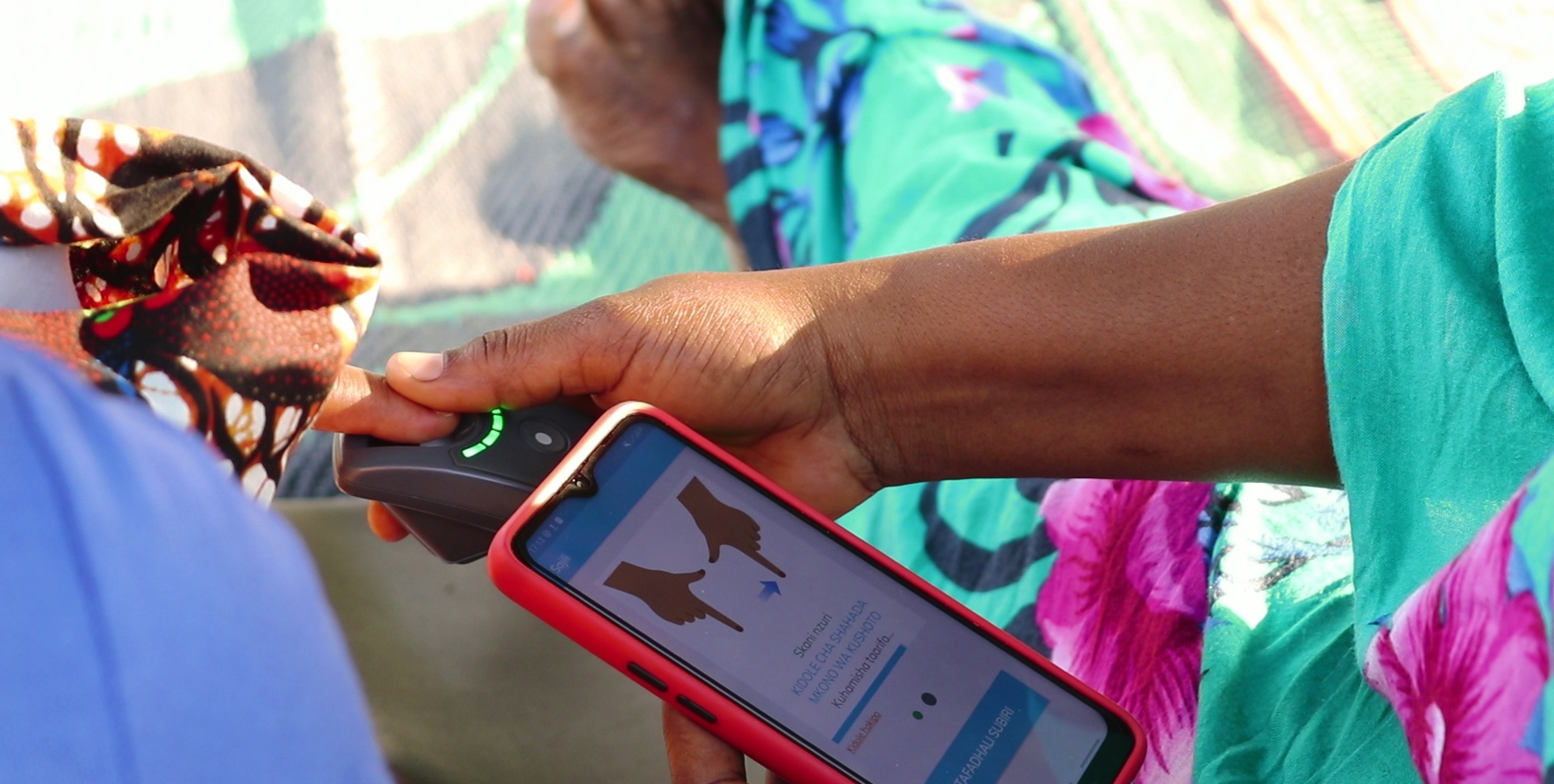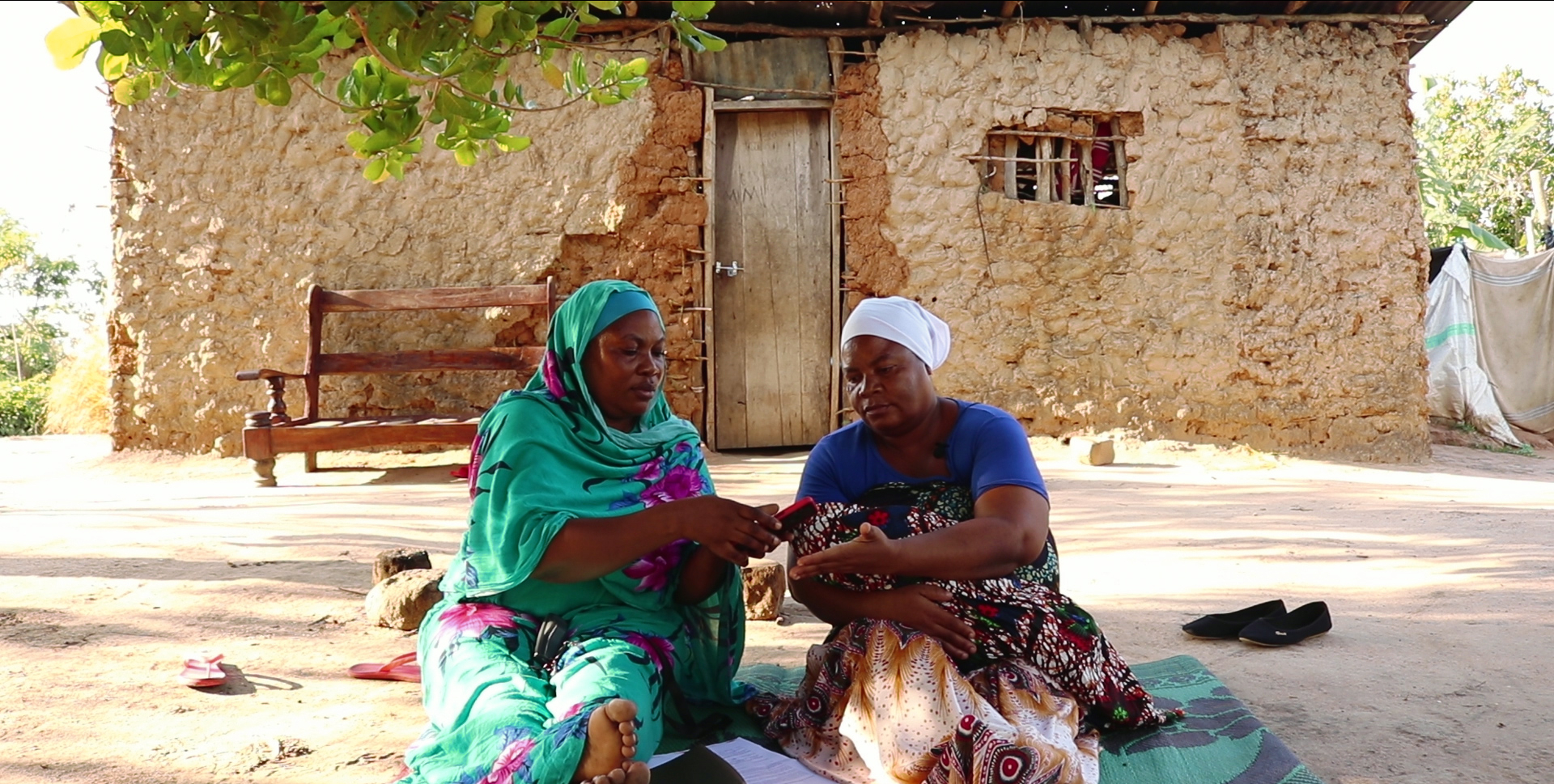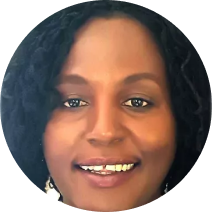This blog is part of a series. Following our brand refresh, we want to invite readers to better understand our approach and work. Read the other pieces:
- Redefining and reconfirming what we do
- The story of Jamii ni Afya: 3 keys for successful sustainable digital health
- Using data to drive health impact in Tanzania
- What’s the most important ingredient of a successful a design process?
For over 10 years, D-tree has been present in Tanzania working to improve the quality of healthcare. From early on, we saw that a key barrier for people to access the quality care they deserve was the shortage of skilled and supported health care providers. In this blog, Melania Nkaka, D-tree’s Field Coordinator in Tanzania, explains more about how we support the health workforce in the country.
While the government of Tanzania has made great strides to improve human resources for health at the community level, the shortage of health workers in Tanzania remains a major challenge. Last year, the Tanzania National Nurses Association warned that nurses had to attend between 50 and 60 patients per day – which makes it difficult to provide quality health services for all. At D-tree, we strongly believe that Community Health Workers (CHWs) play a crucial role in reaching every mother and child in need of services, and ultimately in advancing Universal Health Coverage (UHC), and digital tools are one critical way to support them in this role.
“The Tanzania National Nurses Association warned that nurses had to attend between 50 and 60 patients per day – a challenge for good access and quality of care.”
A strong health workforce is one with a diverse mix of skills and is sustainably integrated in countries’ health systems. To ensure this becomes a reality, D-tree approaches health workforce strengthening through a holistic systems approach. By this, we mean that we are empowering the health worker, but also establishing strong structures for supervision and creating an enabling environment with government and partner advocates. We focus on equipping CHWs with the necessary knowledge to be able to carry out quality health services as well as get proper supervision to maintain motivation.
Our flagship project in Tanzania, Afya-Tek, is strengthening the health workforce by connecting different points of care – the community, the drug stores and the health facilities – to create a seamless experience that changes the way patients interact with their care. Through Afya-Tek, we are proud to have so far engaged 500 health workers that have completed over 160,000 home visits, reaching over 280,000 clients.
Community Health Workers and digital tools in Afya-Tek
As part of Afya-Tek, we have developed a digital app that guides CHWs through their shift. At the start their day they open the app on their phone where they are normally faced with two tasks – client registration and client visits. To register clients, the CHWs visit households that are not yet registered and make sure their information is captured in the app so that they can move to the next step and conduct any client visits as necessary.
The app does not only enable the CHWs to deliver quality and standardized care, but it also successfully blends in with the continuum of care as it connects clients with health facilities as well as drug supply at the Accredited Drug Dispensing Outlets (ADDOs). In case of minor illnesses and no sign of high-risk pregnancy, the woman will be linked to an ADDO to receive the necessary medication which can ease her symptoms, and in cases of high-risk pregnancies, the CHWs will refer the pregnant women to a health facility to get the preventative treatment they need. Since January 2021 to June 2022, 5,340 pregnant women have been registered, with fever and abdominal pain being the most common danger signs.

Supporting the health system today with tools for tomorrow
Due to the ongoing pressures placed on the health system in Tanzania and many other low- and middle-income countries, task-shifting from health workers such as nurses and doctors to CHWs continues to be a reality. To achieve UHC, clients—especially those in rural and hard-to-reach areas, are dependent upon CHW’s availability, accessibility and ability to deliver quality, standardized care.
“People, and especially those in rural and hard-to-reach areas, are dependent upon CHW’s availability, accessibility and ability to deliver quality, standardized care.”
By equipping CHWs with the right digital tools to guide them through standard care delivery, improving the continuum of care between different points in the health system, and empowering CHW supervisors with real-time data to use management and decision-making, we are supporting the health system of today with tools for tomorrow.

Impact, successes and learnings
Our efforts in Tanzania have increased the global knowledge base on how to use digital tools to early on to identify high-risk pregnancies, postnatal mothers and children under 5 years and make sure they are referred to a health facility as soon as possible as and if needed. The innovation has saved the lives of many mothers and children in Tanzania we believe there’s real potential for D-tree to continue to work with the government to scale the use of digital tools in Tanzania and are involved in conversations with the government on what a government transition of Afya-Tek could look like.
Through these actions, we will sustainably strengthen and empower health workers to feel confident in using digital tools and providing quality care – ensuring that people receive the right care at the right time.
You can find out more about our approach and work to support health workforces globally here.
Afya-Tek wouldn’t have been possible without generous funding from Fondation Botnar and Crown Family Philanthropies or our partners – the government of Tanzania, the Institute of Tropical Medicine Antwerp, ONA, Inspired Ideas, Simprints and Apotheker.

